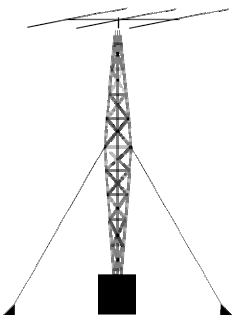There has been a lot in the press recently about phone hacking and that hackers working through a Chinese-based IP address that broke into the network of Nasa's Jet Propulsion Laboratory and gained "full functional control" of computers (Telegraph). Hackers have been around for a long time though, as a recent New Scientist article highlighted.
Things did not go smoothly for Marconi and Fleming at the Royal Institution one day in June 1903. Just before Fleming was due to receive Marconi's Morse messages from Polduh Cornwall, a rhythmic ticking noise sputtered from the theatre's brass projection lantern - Someone was beaming powerful wireless pulses into the theatre and they were strong enough to interfere with the projector.
The Morse printer first of all kept outputting the word rats. It then got more personal, with “There was a young fellow of Italy, who diddled the public quite prettily" it trilled. Rude epithets from Shakespeare followed.
Marconi was probably a bit peeved, but he did not respond directly. Fleming fired of a missive to the Times, dubbing the hack "scientific hooliganism", and "an outrage against the traditions of the Royal Institution". He asked the newspaper's readers to help him find the culprit.
Marconi was probably a bit peeved, but he did not respond directly. Fleming fired of a missive to the Times, dubbing the hack "scientific hooliganism", and "an outrage against the traditions of the Royal Institution". He asked the newspaper's readers to help him find the culprit.
Nevil Maskelyne, a British music hall magician wrote back to the Times and justified his actions on the grounds of the security holes he had revealed for the public good.
Marconi had claimed that his wireless messages could be sent privately over great distances.
Marconi in London's St James Gazette in February 1903 claimed that "I can tune my instruments so that no other instrument that is not similarly tuned can tap my messages."
Marconi in London's St James Gazette in February 1903 claimed that "I can tune my instruments so that no other instrument that is not similarly tuned can tap my messages."
One of the big losers from Marconi's technology looked likely to be the wired telegraphy industry, and they hired Maskelyne to undertake spying operations. He obliged by building a radio mast and met success by receiving Marconi messages with a 25-foot collecting circuit. Marconi had patented a technology for tuning a wireless transmitter to broadcast on a precise wavelength. A tuning that he claimed meant confidential channels could be set up. Maskelyne’s broadband receiver bypassed all that.
Nasa was one of the organisations breached by the British hacker and Asperger's sufferer Gary McKinnon in 2001 and 2002. He is still battling extradition to the US. (Blog July 2009, Guardian and at http://freegary.org.uk/ )
Gary Mulgrew, one of the NatWest Three and the author of an account of two blood-spattered years spent at the hands of America’s penal system says that Gary McKinnon, faces an ordeal of terrifying brutality if he is extradited to the United States (Daily Mail). McKinnon claims he was looking for evidence of UFOs when he hacked into 97 Nasa and Pentagon computers from his flat in 2002.
Mulgrew is also critical of America’s claim that any ‘wire fraud’ crossing its national boundaries gives it the right to prosecute. ‘British parents with teenage children should know that a simple email sent through a US server could be enough – in the wrong circumstances – to see them extradited.
Gary Mulgrew, one of the NatWest Three and the author of an account of two blood-spattered years spent at the hands of America’s penal system says that Gary McKinnon, faces an ordeal of terrifying brutality if he is extradited to the United States (Daily Mail). McKinnon claims he was looking for evidence of UFOs when he hacked into 97 Nasa and Pentagon computers from his flat in 2002.
Mulgrew is also critical of America’s claim that any ‘wire fraud’ crossing its national boundaries gives it the right to prosecute. ‘British parents with teenage children should know that a simple email sent through a US server could be enough – in the wrong circumstances – to see them extradited.




No comments:
Post a Comment